#poet and playwright
Text
Andrew Minyard, Literature Major ("Hell hath no fury" , "Jean Valjean") getting a PhD just to piss off Aaron so they're both Dr. Minyard is just--
#William Congreve (1670-1729)#an English playwright and poet. The entire quote reads#“Heaven has no rage like love to hatred turned#Nor hell a fury like a woman scorned#The Mourning Bride#jean valjean#from Les Miserables de Victor Hugo#aftg#all for the game#andreil#andrew minyard#twinyards#aaron minyard#they're so stupid#and smart#and andrew is so dramatic for quoting so much shit
757 notes
·
View notes
Text
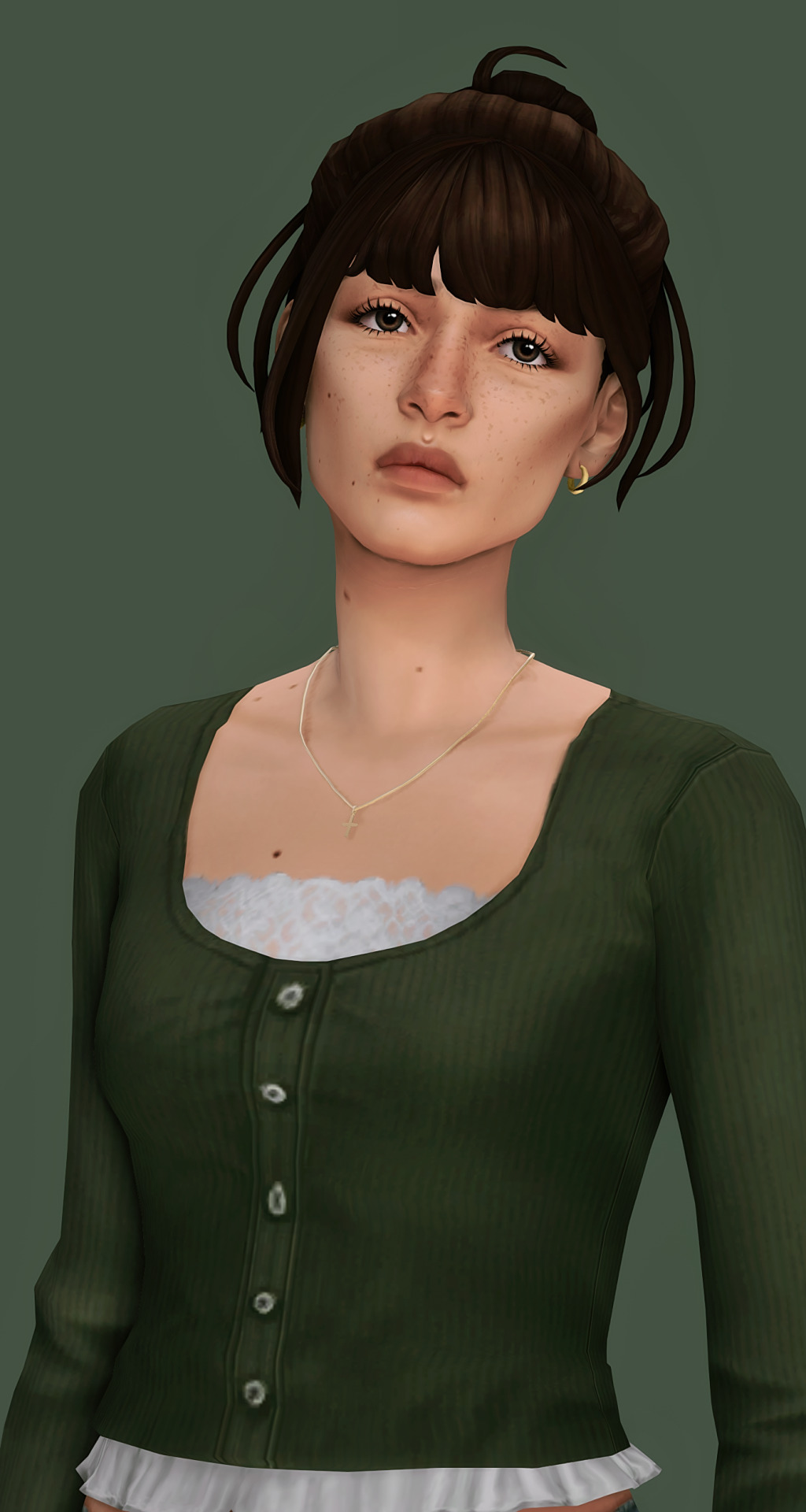
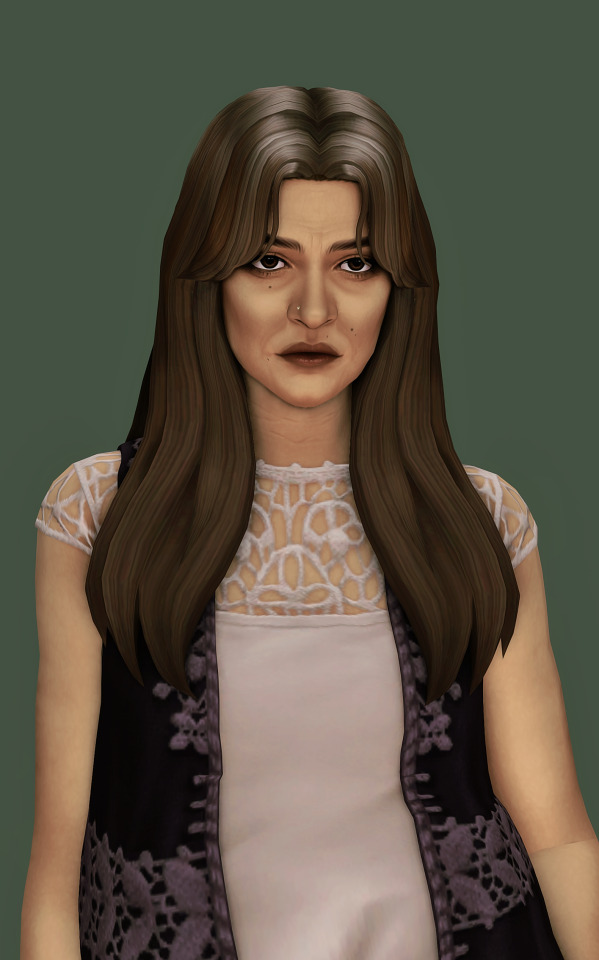

bookworms.
#we have a poet a playwright and a librarian#simblr#ts4 cas#show us your sims#ts4#second sim kinda reminds me of my first Italian teacher I miss her
205 notes
·
View notes
Text

Oscar Wilde was full of witticisms until the very end..
#Oscar Wilde#Irish poet#playwright#humour#UK#Dublin#quotation#Victorian era#English literature#novelist#Ireland#controversy#famous quotes#experience#lesson#1854 - 1900
118 notes
·
View notes
Photo

Pier Paolo Pasolini (deceased)
Gender: Male
Sexuality: Gay
DOB: 5 March 1922
RIP: 2 November 1975
Ethnicity: White - Italian
Occupation: Poet, screenwriter, playwright, journalist, actor, director
#Pier Paolo Pasolini#lgbt history#lgbt#mlm#lgbtq#male#gay#1922#rip#historical#white#italian#poet#screenwriter#playwright#journalist#actor#director#writer
153 notes
·
View notes
Text
The most solid piece of advice I was ever given as a young writer was this: Read as much as you possibly can. Read twice as much as you write. Don't just read the genres you like or plan to write--read a bit of everything. Read from the best sellers list, read the books that flopped, read classics, read poetry, read playscripts, read non-fiction, read self-help, read everything.
You can read a thousand writing tips on the internet, but I promise you that some of the best lessons on writing are already out there sitting on a bookshelf somewhere. Pay attention to how the masters handled their craft, learn from them, and use that knowledge to help shape your own unique voice.
#novel writing#creative writing#writers block#writers#writing#writerscommunity#writing tips#writing advice#poets#poetblr#novelist#playwright#screenwriters#comic book writer#blogger#journalist
280 notes
·
View notes
Photo
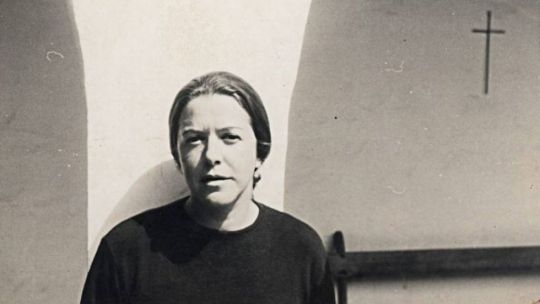
Brazilian poet Hilda Hilst
#Hilda Hilst#Hilst#Jaú#Brazilian#Brazil#Jau#poetry#poet#playwright#author#writer#Campinas#São Paulo#1930#1930's#2004#2000's#1900's
74 notes
·
View notes
Text
#OTD in 1906 – Birth of playwright, Samuel Beckett, in Foxrock, Co Dublin.
“We are all born mad. Some remain so.” –Samuel Beckett
An Irish avant-garde novelist, playwright, theatre director, and poet, who lived in Paris for most of his adult life and wrote in both English and French. Beckett is widely regarded as among the most influential writers of the 20th century.
During the 1930s and 1940s he wrote his first novels and short stories. He wrote a trilogy of novels in…
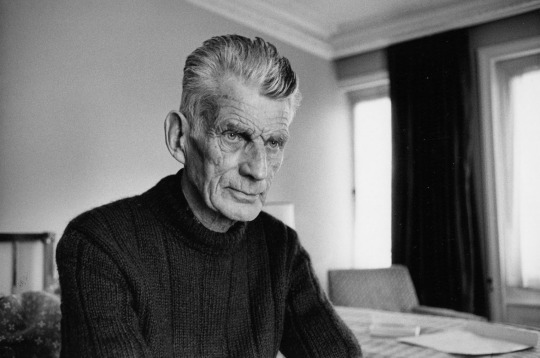
View On WordPress
#Co. Dublin#Foxrock#France#Ireland#James Joyce#Literature#London#Nobel Prize#Novelist#Paris#playwright#Poet#Samuel Beckett#theatre director
7 notes
·
View notes
Text

#jean cocteau#was debating whether to put poet/director/playwright/etc. because thats the issue with him (affectionate)
13 notes
·
View notes
Text

Picture of Dorian Gray
Ivan Albright
oil on canvas, 1943/44
#Ivan Albright#art#artist#painter#painting#Picture of Dorian Gray#Oscar Wilde#author#writer#playwright#poet#oil on canvas#1943/44
232 notes
·
View notes
Text
"My enchantress! My girl of dreams!"
- Anton Chekhov
#romantic literature#play rehearsal#playwright#anton chekhov#foryou#tumblrpost#source: tumblr#quotes#literature#quoteoftheday#poems and poetry#poetry#beautiful quote#romantic#romance#dead poets society#poetic#writerscommunity#writers and poets#my girl#enchanted#lovers
7 notes
·
View notes
Text
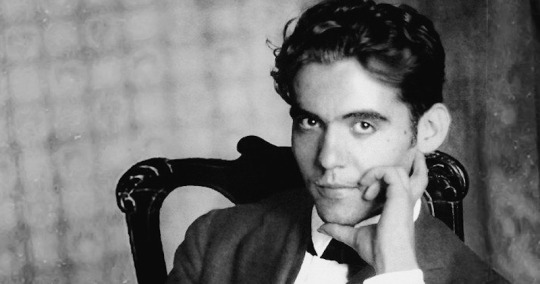
Federico García Lorca, the renowned Spanish poet, playwright, and theater director, was born on June 5, 1898.
Lorca had a close friendship with the renowned Spanish surrealist painter Salvador Dalí. They met in the Residencia de Estudiantes in Madrid and developed a deep bond. They shared an artistic connection and both became prominent figures in the Surrealist movement. Although their friendship eventually cooled, they had a significant influence on each other's work.
Lorca's poetry often explores themes of desire, love, and same-sex attraction, and some of his poems contain homoerotic undertones. Additionally, his personal correspondence with friends, such as the letters exchanged with Salvador Dalí, hints at a deeper emotional and possibly romantic connection.
Lorca was executed during the Spanish Civil War and buried in an unmarked grave where he still lays. He was arrested by Nationalist forces on August 16, 1936, in Granada, Spain. The exact circumstances surrounding his death have been a subject of debate and controversy, but it is widely believed that he was executed by a firing squad shortly after his arrest.
In the final verse of his 1929 poem, “The Fable And Round of the Three Friend,” García Lorca describes not just the violent manner of his eventual end, but the fruitless search for his body that would follow:
Then I realized I had been murdered.
They looked for me in cafes, cemeteries and churches
…. but they did not find me.
They never found me?
No. They never found me.
From “The Fable And Round of the Three Friends,” Poet in New York (1929), García Lorca
Lorca's homosexuality and his work likely contributed to his arrest and subsequent execution. He explored themes of oppression, injustice, societal constraints, and the struggles faced by marginalized individuals.
Two of his notable works include:
"La casa de Bernarda Alba" (The House of Bernarda Alba): This play, published posthumously in 1945, is set in a small Spanish village and depicts the lives of women confined within the strict confines of a traditional, oppressive society. The play explores themes of repression, power dynamics, and the consequences of societal expectations. It provides a critical examination of the oppressive nature of patriarchal society and its impact on women's lives.
“Romancero Gitano” (Gypsy Ballads): Published in 1928, this collection of poems draws inspiration from the lives and culture of the Andalusian Gypsy community. While not overtly political, these poems can be seen as a form of social commentary, shedding light on the marginalization and discrimination faced by the Gypsy population in Spanish society. Through vivid imagery and evocative language, Lorca explores themes of identity, alienation, and the search for freedom.
It is important to note that Lorca's works were created during a time of political turmoil in Spain, including the rise of fascism and the Spanish Civil War. While his works may not directly address political events or ideologies, they often reflect the underlying tensions and social injustices present in the society of his time
24 notes
·
View notes
Text
As fairygodcomplex it is important to me that I drop random Fairy Lore from time to time. Without further ado, my dear vacuum that I shout into.
Fairy Lore Friday
So today’s lore is centered around the Leanan sídhe (or leannan sith in Scottish Gaelic) which is a fairy from Irish folklore. Let’s get into it!
So the Leanan sídhe is depicted in various ways but the main through line is that she is a fairy who takes human lovers and imbues them wit the spirit of creativity, a mad and all-consuming spirit that often offers them great success artistically. However, this creativity comes at a cost as the Leanan sídhe slowly consumes her human lovers leading to their untimely and early deaths. It’s been seen that the Leanan sídhe is used as a way of explaining why great artists tend to die young. Also as a note, the Leanan sídhe generally (but not always) appears as a woman.
Whether or not the Leanan sídhe actually enjoys these conquests depends on the story. It seems like, in Ireland, she is portrayed more generously as not wanting her artist companions to die and sometimes leaving after she sees her effect on them (a twisted if not apt explanation of writer’s block). In Scotland, the general consensus seems to be that these vampiric tendencies are intentional (I’m by no means an expert though so if anyone has experienced otherwise definitely respond! I’d love to hear about it!)
So, the Leanan sídhe has a few really big name notches on her metaphorical bedpost, notably Oscar Wilde and his brother Willie. Both were creatives, Oscar, a poet and playwright, Willie, a poet and journalist, and both died fairly young, seemingly wasting away from long afflictions.
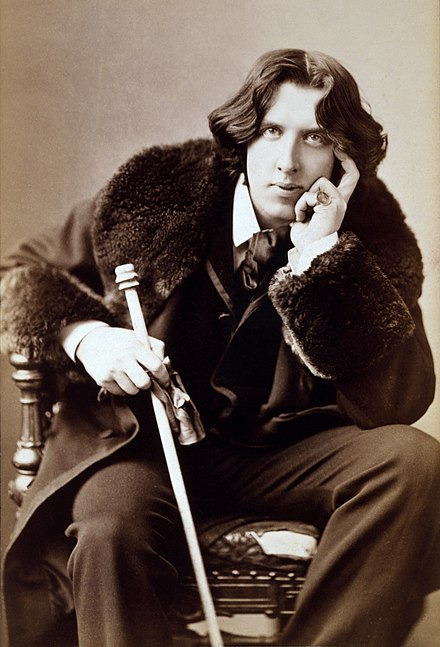
[Image description: Oscar Wilde]
W.B. Yeats wrote about the Leanan sídhe and, in many ways, brought the figure back into popular imagination in the 19th century. However, there was another author who wrote about the creature before and much of what is written about the Leanan sídhe actually comes from their works. The accomplished author, journalist, and poet, Speranza, first wrote about the Leanan sídhe in Ancient Legends, Mystic Charms and Superstitions of Ireland in 1887.
Speranza was a creative in their own rite, they wrote at great length about Irish Independence. So fierce was their work that the publisher, Charles Gavan Duffy, was arrested for sedition for the works, despite his protestations he was not the author. So who was Speranza?
Well, Speranza continued to write, they even publicly admitted that they wrote under the pen name at the trial of Duffy, but no one believed them.
Speranza lived out their later years in England and continued to be a fairly successful poet and author, however; she never achieved the same level of fame and recognition as her two sons, who both died a little over a decade after she published her book. Those sons, if you didn't guess already, were Oscar and Willie Wilde, and Speranza, none other than Lady Jane Wilde.

[Image Description: Illustration of Lady Jane Wilde, writer and mother of Willie and Oscar Wilde]
There are different ways to interpret this story and it is entirely possible that Oscar and Willie Wilde are associated with the Leanan sídhe precisely because their mother wrote about the creature at length; however, one can also view this story as one family's tragic and prolonged engagement with a creature that led to their many successes as well as their tragedies.
I have my sources below and maybe I'll make this a regularly thing! But with that, I conclude my Fairy Lore Friday.
Bye y'all!

Sources:
https://en.wikipedia.org/wiki/Leanan_s%C3%ADdhe
https://legendsoflove.wordpress.com/2019/09/08/leanan-sidhe-a-dangerous-fairy-woman-of-the-otherworld-in-irish-mythology/
https://en.wikipedia.org/wiki/Jane_Wilde
https://headstuff.org/culture/history/terrible-people-from-history/lady-jane-wilde-aka-speranza-writer/
https://www.irishcentral.com/roots/history/who-irish-demon-girl-ancient-myths-legends
https://www.lorepodcast.com/episodes/legends7 (this one is a podcast and it inspired me)
#folklore#fair folk#fairy#fairies#faerie#fae#fae folk#irish mythology#irish folklore#oscar wilde#poetry#poet#playwright#drama#mythology#fairy lore friday#op
10 notes
·
View notes
Text
"The attention was flattering. For the first five minutes. Now I know how poems feel."
Margaret Edson, Wit
#margaret edson#wit#plays#playwright#poet#poem#poetry#words#daily quotes#quotations#book quotes#quotation#quote#quotes#cancer#books about cancer#john donne#listen if you've read wit then u know donne deserves a tag
10 notes
·
View notes
Text

d'bi.young anitafrika
Gender: Non binary (she/they)
Sexuality: Queer
DOB: 23 December 1977
Ethnicity: Afro Caribbean - Jamaican
Nationality: Canadian
Occupation: Dub poet, writer, performance artist, scholar/educator, playwright, singer, activist, actor
#d'bi.young anitafrika#d'bi young anitafrika#black excellence#lgbtq#non binary#queer#1977#afro carribean#jamaican#caribbean#poc#black#poet#playwright#teacher#singer#activist#actor#popular#popular post
157 notes
·
View notes
Text

William Shakespeare. 📖🖊📚🌟
#william shakespeare#shakespeare#shakespeare in love#shakespeare in the park#poetry#poets on tumblr#writers and poets#scriptwriting#playwright#playwriting#portrait art#portrait painting#abstract portrait#prose#literature#reading and writing#romeo and juliet#hamlet#othello#julius caesar#a midsummer night's dream#loves labours lost#renaissance#love poem#love poetry#macbeth#live theatre#musical theatre#musical theater fandom#musical theater kid
4 notes
·
View notes
Note
Re: fanfic assumptions, I know I was right about most of mine but I'll tell you one I know I was wrong about—I simply assumed you were a lit major, and possibly that you'd done lit for post-grad as well.
Cecil!! That is v flattering and of course you are not entirely wrong as I did allow myself to minor in lit, in uh, my second language. Which is totally the same thing. (The comments on a third year analysis of a certain poem that I definitely didn't shoehorn into Saint Morpheus say it all haha: A very clever and detailed analysis. Shame about the language errors, but it was splendid in every way.)
But alas!! I studied political science. I would've been so much happier in lit. I definitely could have gotten by in life happily having read half the political philosophy I did, and absolutely none of the Kant. Mysteriously, by my final year every single thing I worked on was through the lens of narratives - whether in migration policy analysis or the settler national dream - and the consequences of the stories we tell about our countries, ourselves, and others.
Even in politics I ended up (unexpectedly, to me, and nobody else in my life then or now) talking mostly about storytelling. Maybe one day, when I am a kept woman, or marry a foreigner with free national universities, I'll go back and do it properly, the way I felt too poor to do then.
(send me weirdly specific assumptions you've made about me based on my fanfic)
#ask game#i can't think of anything funnier re compromising on doing what i would really love than doing it not only as a minor but in a diff languag#anyways french moots if you EVER want to talk about 19th-20th c. french playwrights and poets or post-war french-canadian lit hmu#as this is actually the only literature i've ever studied lol#about me
13 notes
·
View notes